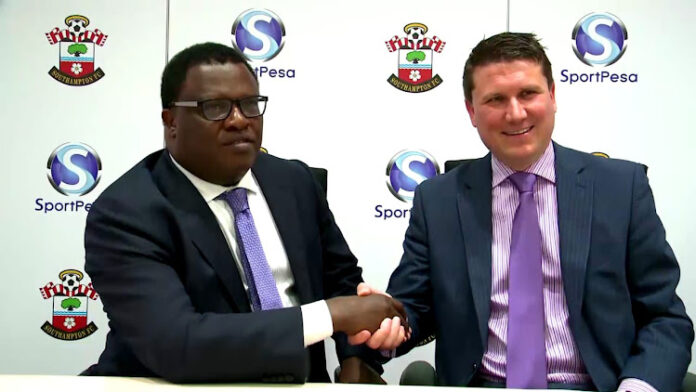Paul Despite being a reclusive businessman, billionaire entrepreneur Paul Ndung’u was in 2020 and early 2021 thrown into the limelight following the legal contest over the ownership of controversial betting firm SportPesa.
Ndung’u was one of the key shareholders who accused SportPesa chief executive office Ronald Karauri of engineering an illegal takeover through gaming firm Milestone.
The takeover, which also included the transfer of SportPesa shares to foreigners effectively left Ndungu and other local shareholders with a shell under the brand name Pevans East Africa.
But how exactly did Ndung’u became a billionaire. The billionaire, who is a shareholder and non-executive director of Life Care Medics, has been investing in private companies with the potential to capture the regional market as part of his plan to diversify from the Nairobi Securities Exchange.
“I have invested in eight private companies. I’m currently evaluating others,” he said. The list of private companies he has founded, acquired or bought into includes a sports betting firm, and G-North & Son, an agricultural and hospitality equipment distributor he bought from the Philip Ndegwa family.
I am afraid of Omar Lali, Keroche boss Tabitha Karanja says
Whether by design or sheer luck, Mr. Ndung’u’s fortunes have enabled him to cultivate a circle of powerful and high profile friends, including the family of retired president Mwai Kibaki and his successor Uhuru Kenyatta.
However, he disputed that these connections have helped to nail lucrative deals or grow his businesses. “I am a businessman, not a politician. It’s sad when a legitimate business is caught up in a political circus,” he said. Recently one of his firms Life Care Medics was claimed to have been paid Sh. 201 million by the Ministry of Health to make deliveries.
According to Mr. Ndung’u, his wealth has been built on good investment decisions. He says that increased investment in private firms are meant to absorb and grow cash generated from his portfolio of stocks and foreign exchange bureaus.
His first job was at Uchumi Supermarkets as an accounting clerk in 1991, a position he held for two years before joining Pioneer Assurance, then trading as Pioneer general Assurance.
It was here that he held the dual roles of chief accountant and investment officer and honed his skills as stock picker. He has at one point or another ranked among the top shareholders in Kenya Airways, Kenya Re, Home Afrika, Crown Paints, Housing Finance, Uchumi Supermarkets, Olympia and has interests in other listed firms. In 2000s, his portfolio on the NSE at one point peaked at Sh. 4 billion. With some of these listed firms going under he was quick to diversify his portfolio and retain position as one of the wealthiest NSE billionaires.
Kenya’s move to fully liberalize its foreign exchange market in 1994 prompted Ndung’u to venture out the next year in 1995, starting off as the owner of a start-up forex bureau along Kimathi Street in Nairobi. “I had visited Uganda and seen that forex bureaus were making large margins of up to 15 per cent on trades,” he said.
He went on to own two more bureaus, circumventing the Central Bank law that prohibited forex bureaus from opening branches.
In 2001, he teamed up with a partner to form Mobicom, a dealer that rod the wave of Safaricom’s success for a decade. With 42 outlets countrywide, Mobicom quickly became one of Kenya’s leading telecommunications firms providing retail and wholesale scratch cards, phones and other accessories.
“I had travelled to a number of countries and realised the growth opportunities in the mobile phone industry,” he said, highlighting the cases of Egypt and Uganda which were well ahead of Kenya in mobile telephony at the turn of the century. When the service opened in Kenya, Safaricom was able to penetrate most parts of the country with its services and products thereby increasing its subscriber base and earnings,” he said.
How we started with Sh. 200,000 and made Sh. 12 million in two years
His biggest money making trades, though have been on the NSE. The trades which elevated him to the billionaires club came in the early 2000s. He had been buying and selling shares, booking profits from the transactions at a time when there was no limit on daily share price movements at the NSE.
Sometime in 2002, Mr. Ndung’u decided to bet big on Kenya Power shares which were trading at sh. 1 per share. “I thought that it was an undervaluation of the company and I bought a he chunk,” he said. He bought one million shares and a year later, he sold them at Sh. 6 each, raking in sh. 6 million.
He then combined these proceeds with bank loans to make an even larger leveraged bet on Kenya Airways, buying 16 million shares at around Sh. 6 each in 2003.
The stock’s price skyrocketed and between 2005 and 2006, Mr. Ndung’u started selling at around Sh. 120 each. “From the start of my investment in Kenya Power to my exit at Kenya Airways, I had grown my portfolio to Sh. 2.1 billion.”
What I learned after taking Sh. 300,000 loan to start chicken farming
However, not all of his stock market investments have been as profitable. He was shareholder at CMC Holdings where boardroom wrangles, corruption and improper accounting nearly brought down the company. In 2014, he and other investors were bought off for Sh. 7.5 billion. Paul Ndungu Net Worth. Paul Ndungu Net Worth.









